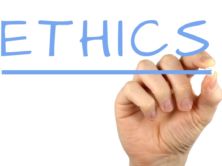Fiji Media Watch criticized a new media decree. (Credit: Fiji Media Watch)
Fiji Media Watch questioned a new Fiji media “decree” and its potential effect on media independence, according to Radio Australia. Fiji Media Watch is a group created in response to public criticism of “explicit sex scenes in advertisements” in the early 1990s.
The “decree” will let media outlets report “any comments by the Prime Minister or Cabinet Ministers” without being prosecuted, Radio Australia reported. According to the Fiji Times, under The State Proceedings (Amendment) Decree 2012, anything said or written by the Fiji “Prime Minister and his ministers” “in their official or personal capacity” cannot be prosecuted. Further, journalists cannot be prosecuted for reporting on this information.
Fiji Media Watch’s executive director Agatha Ferei said on Radio Australia that the group does “not support this amendment decree” because the government could feed inaccurate information through the outlets. Ferei added the the decree wouldn’t mesh with Fiji’s media ethics code because inaccurate or unbalanced information could be aired.
See here the Fiji Media Council’s code of ethics.
Fiji Media Watch’s Fulori Turaga told the Fiji Times that the group advocates “truth and respect in the kinds of stories published” as well as balanced reported.
The International Federation of Journalists also expressed concern about the proposal, according to Radio New Zealand International.
The Pacific Freedom Forum joined the Fiji Media Watch’s recommendation for journalists to abide by the code of ethics despite the new decree, according to Fiji Village.
Radio New Zealand International reported that “Independent Pacific media scholar” Dr. Mark Hayes warned that the law “could have a chilling effect on the run-up to promised elections” because government officials could speak “freely without any comeback,” whereas critics cannot. The Fiji Times repoted that “the decree is expected to expire after a new parliament is in place” and that elections are in 2014.
We have written to Fiji Media Watch for more information and will update with any response.
UPDATE: 2/21/2012 11:33 AM EST: Added information about the elections and length of the decree.







Comments Terms and Conditions